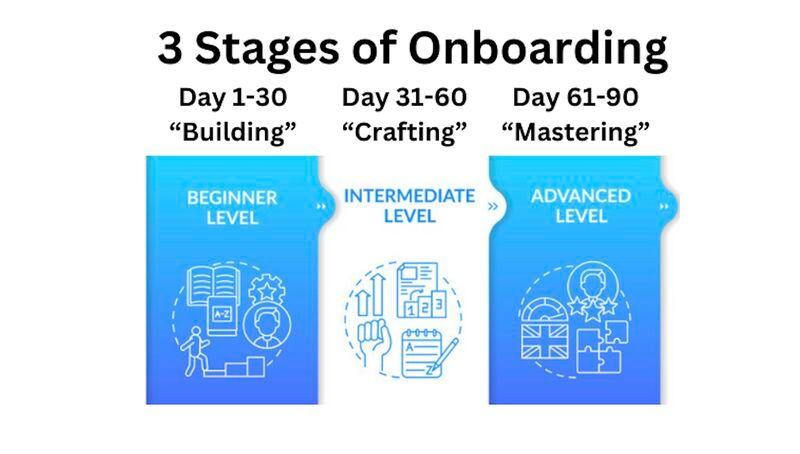Welcome to the second installment of our three-part series on "Optimizing Onboarding for Tech Professionals." In this phase, much like intermediate language learning, we move beyond the basics. Just as language learners begin expressing ideas, stories, and thoughts, your onboarding journey now focuses on turning foundational knowledge into lasting skills.
Now, let's explore the challenges and strategies unique to this intermediate phase of onboarding.
Three Common Challenges:
1. Lack of Collective Resources:
The absence of readily available collective resources can hinder skill development. For example, for Solutions Engineers (SEs), essential resources like competitive analysis, common use cases, technical FAQs, and customer success stories are often scattered or created reactively.
2. Simulated Readiness Assessments:
Managers struggle to determine when new team members are ready for real tasks. Without proper assessments, new hires may make critical mistakes in live situations. This is akin to medical professionals who spend hours practicing in simulated labs before they can perform real procedures.
3. Consistent Study Routine:
Maintaining a consistent study routine becomes challenging as learners are pulled into different tasks, shadowing calls, and meetings. Prioritization and time management are critical for effective skill development. Think of it as creating a daily language practice routine to build fluency.
So, how do we remedy this?
Solution 1: Providing Collective Resources for Skill Development
For tech roles, crucial resources like competitive analysis, common use cases, FAQs, and customer success stories are centralized within the onboarding framework, catering to role-specific needs and enhancing their efficiency and performance.
Example:
In the onboarding framework, these essential resources are readily available to learners. For example, Solutions Engineers (SEs) gain access to a comprehensive resource library, including up-to-date competitive analyses, use case documents, technical FAQs, and a curated collection of customer success stories. By centralizing these resources, SEs can efficiently access the information they need to excel in their role.
Pro Tip: Depending on the role, resources may vary. For SEs, competitive analysis and use cases are crucial, but for other roles, FAQs and success stories might be more relevant.
Solution 2: Implementing Mock Demos with Clear Rubrics
Managers often struggle to gauge when new team members are prepared for real tasks. To bridge this gap, it's essential to create simulated readiness assessments, particularly for roles like SEs. This involves the development of mock demos with clear rubrics.
Example:
In this solution, SEs go through a series of mock demos tailored to their role, covering different stages of presales, such as discovery, custom demos, and technical validation. Each mock demo has a set of clear rubrics that define success criteria. Learners prepare, perform, receive immediate feedback, and iterate. Successful completion of these mock demos earns them validation that they are ready for live calls.
Pro Tip:Depending on the role, rubrics and requirements may vary. Regularly sync with managers or mentors to align on these specifics.
Solution 3: Mastering Time Management and Prioritization
Maintaining a consistent study routine becomes challenging in the second phase of onboarding. Learners often get pulled into various tasks and meetings, making it challenging to focus on skill development. Effective time management and prioritization techniques are essential.
Example:
One effective technique is the "Eat That Frog" method, inspired by Brian Tracy's book. The concept is simple: tackle the most challenging or important tasks first thing in the morning when your energy and focus are at their peak.
Pro Tip: Depending on the role, prioritization may vary. Communicate your priorities to managers or mentors and proactively protect your study time.
Stay tuned for part three of our series, where we delve into the final phase of technical onboarding for small and medium startups.
About Celine Valentine
Celine Valentine is a passionate advocate for bridging the worlds of education and technology. With a background in both fields, she shares valuable insights and resources to empower growth and innovation. Join her on CelineValentine.com for thought leadership in onboarding and enablement.

